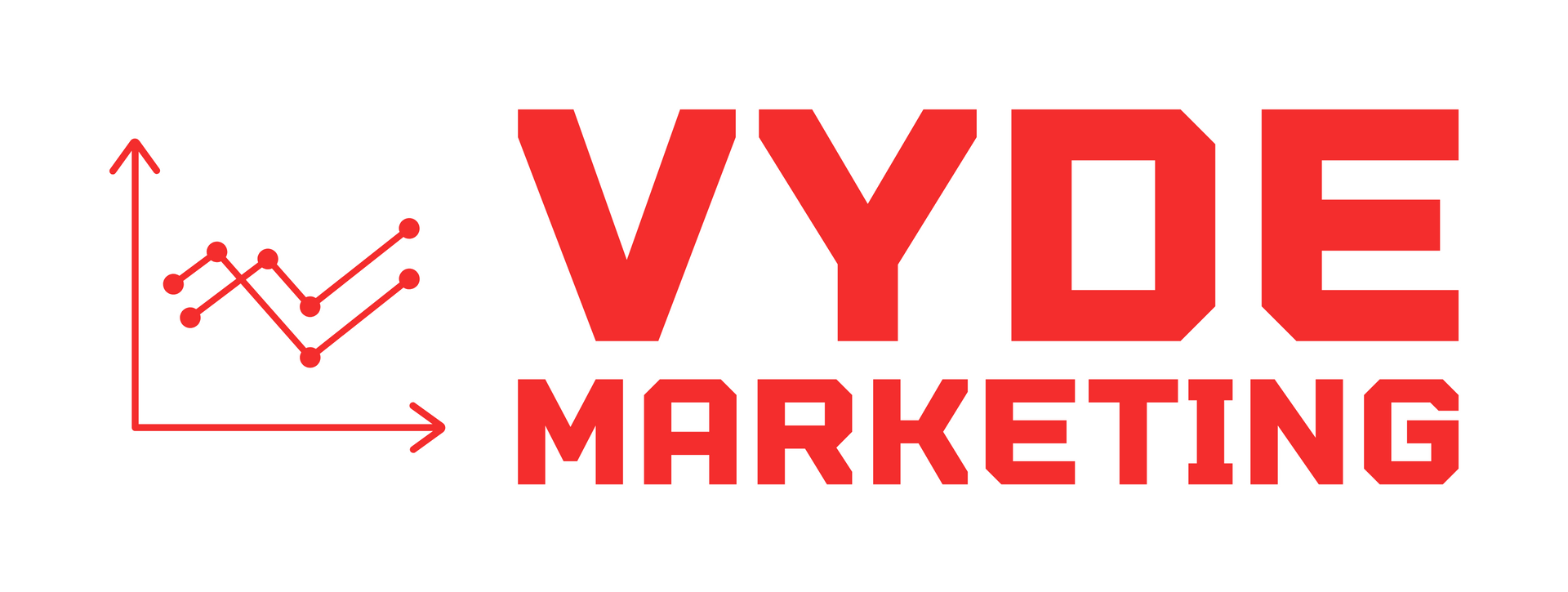Local SEO Strategies: How to Get Found by Customers Near You
Definition of Local SEO
Local SEO (Search Engine Optimization) is a digital marketing strategy that helps businesses enhance their online visibility for location-based searches. When potential customers search for services or products near them, local SEO ensures that your business appears prominently in the search results. It's about optimizing your online presence to attract more business from relevant local searches.
Importance of Local SEO for Businesses
Local SEO is crucial for businesses with a physical location or those serving specific geographical areas. By leveraging local SEO, you can connect with potential customers who are actively searching for the products or services you offer within your locality.
Benefits of Local SEO
Increased Visibility in Local Search Results
With local SEO, your business can appear in local search results, Google Maps, and Google’s Local Pack, increasing the chances of attracting local customers.
Higher Conversion Rates from Local Searches
Local searches often lead to higher conversion rates because users searching locally are typically ready to purchase.
Enhanced Online Presence and Credibility
A strong local SEO strategy can enhance your online presence, build credibility, and establish trust within your community.
Understanding Local Search
How Local Search Works
Search engines use algorithms to determine the relevance of local queries. Factors like the user’s location, NAP (Name, Address, Phone number) consistency, and reviews play a significant role in how businesses are ranked in local search results.
Key Components of Local SEO
Google My Business (GMB)
Google My Business is a free tool that allows businesses to manage their online presence on Google. An optimized GMB profile is essential for local SEO success.
Local Citations
Local citations are online mentions of your business, including its name, address, and phone number (NAP). They help search engines confirm your business's existence and relevance.
Reviews and Ratings
Customer reviews and ratings significantly impact local search rankings and influence potential customers' decisions.
Optimizing Google My Business (GMB)
Setting Up GMB Profile
Claiming Your Business
To get started with GMB, you need to claim your business listing. This involves verifying that you own the business, which can be done through a postcard, phone call, or email verification.
Verifying Your Business
Verification is crucial as it adds credibility and allows you to make changes to your business information. Ensure all details are accurate and up-to-date.
Optimizing GMB Profile
Accurate Business Information
Make sure your business name, address, and phone number (NAP) are accurate and consistent across all online platforms. This consistency helps search engines and potential customers find your business easily.
Adding Business Hours and Attributes
Include your business hours and any relevant attributes (e.g., free Wi-Fi, wheelchair accessibility) to provide complete information to your customers.
Using High-Quality Images and Videos
High-quality images and videos of your business can make your profile more attractive and engaging, encouraging potential customers to visit.
Utilizing GMB Features
Posts and Updates
Use the posting feature to share updates, promotions, events, and news about your business. Regular updates can keep your audience engaged and informed.
Responding to Reviews
Responding to reviews shows that you value customer feedback and are committed to improving your services. Engage with both positive and negative reviews professionally.
Leveraging Q&A and Messaging
Utilize the Q&A and messaging features to interact directly with customers, answer their queries, and provide timely support.
On-Page SEO for Local Search
Keyword Research for Local SEO
Identifying Local Keywords
Conduct keyword research to identify terms and phrases that potential customers use when searching for local businesses. Tools like Google Keyword Planner and Moz can be helpful.
Long-Tail and Geo-Specific Keywords
Focus on long-tail and geo-specific keywords to target more precise and relevant search queries. For example, instead of "coffee shop," use "coffee shop in downtown Denver."
Optimizing Website Content
Localized Content and Landing Pages
Create content that speaks directly to your local audience. Develop localized landing pages for different locations if you serve multiple areas.
Including Location-Based Keywords
Incorporate location-based keywords naturally into your website’s titles, meta descriptions, headers, and content to improve your local search rankings.
Technical SEO for Local Search
Mobile-Friendliness
Ensure your website is mobile-friendly, as a significant portion of local searches are conducted on mobile devices. Google prioritizes mobile-friendly websites in search results.
Fast Loading Speeds
Optimize your website’s loading speed to enhance user experience and reduce bounce rates. Faster websites perform better in search rankings.
Secure Website (HTTPS)
Use HTTPS to secure your website. A secure site not only protects user data but also signals to search engines that your site is trustworthy.
Building Local Citations and Backlinks
Local Citations
Importance of Consistent NAP
Ensure your business's NAP (Name, Address, Phone number) is consistent across all online directories, social media profiles, and your website. Inconsistencies can confuse search engines and customers.
Listing on Local Directories and Websites
Submit your business information to reputable local directories and websites. This can improve your online presence and local search rankings.
Building Quality Backlinks
Partnering with Local Businesses
Collaborate with local businesses to build relationships and gain backlinks. For example, you can host joint events or write guest posts for each other’s blogs.
Guest Posting on Local Blogs and Websites
Contribute valuable content to local blogs and websites. This not only earns you backlinks but also positions you as an authority in your local community.
Engaging in Local Community Events and Sponsorships
Participate in or sponsor local events. This increases your visibility and provides opportunities to earn backlinks from local event websites and news outlets.
Encouraging and Managing Customer Reviews
Importance of Customer Reviews
Impact on Local Search Rankings
Customer reviews are a significant ranking factor for local SEO. They help search engines determine the quality and relevance of your business.
Influence on Customer Trust and Decisions
Positive reviews build trust and influence potential customers' decisions. People are more likely to visit a business with good reviews.
Strategies to Encourage Reviews
Asking for Reviews from Satisfied Customers
Encourage satisfied customers to leave reviews by asking them directly. You can do this in person, through email, or via follow-up messages.
Providing Incentives for Leaving Reviews
Offer incentives, such as discounts or special offers, to motivate customers to leave reviews. Ensure that the incentives comply with review platform policies.
Managing Reviews
Responding to Positive and Negative Reviews
Always respond to reviews, whether positive or negative. Thank customers for positive feedback and address any issues raised in negative reviews professionally.
Addressing Customer Concerns and Feedback
Take customer concerns seriously and use their feedback to improve your services. Resolving issues promptly can turn unhappy customers into loyal ones.
Leveraging Social Media for Local SEO
Using Social Media Platforms
Engaging with the Local Community
Use social media to engage with your local community. Share local news, events, and updates to build a connection with your audience.
Sharing Local Events and Updates
Promote local events and share updates about your business. This can increase your visibility and encourage local engagement.
Social Media and Local Search
Social Signals Impacting SEO
Social media activity can indirectly impact your local SEO. Shares, likes, and engagement on social media can increase your online presence and drive traffic to your website.
Encouraging Social Shares and Engagement
Encourage your followers to share your content and engage with your posts. This can amplify your reach and attract more local customers.
Monitoring and Analyzing Local SEO Performance
Tools for Monitoring Local SEO
Google Analytics
Use Google Analytics to track website traffic, user behavior, and conversion rates. Analyze data to understand how visitors find and interact with your site.
Google Search Console
Google Search Console provides insights into your site’s search performance, including keyword rankings and indexing status. Use it to identify and fix issues affecting your local SEO.
Local SEO Tools (Moz Local, BrightLocal)
Leverage local SEO tools like Moz Local and BrightLocal to monitor your local search rankings, manage citations, and track reviews.
Analyzing Performance Metrics
Tracking Local Search Rankings
Monitor your local search rankings to see how well your business performs in local search results. Adjust your strategy based on the data.
Monitoring Website Traffic and User Behavior
Analyze website traffic to identify trends and understand user behavior. This can help you optimize your site for better performance.
Analyzing Customer Reviews and Feedback
Regularly review customer feedback to identify areas for improvement. Use positive reviews as testimonials and address any recurring issues highlighted in negative reviews.
Advanced Local SEO Strategies
Voice Search Optimization
Importance of Voice Search in Local SEO
Voice search is becoming increasingly popular. Optimize your content for voice search queries, which are often more conversational and question-based.
Optimizing for Voice Search Queries
Use natural language and long-tail keywords to optimize your content for voice search. Include questions and answers in your content to match common voice search queries.
Local Content Marketing
Creating Locally Relevant Content
Produce content that is relevant to your local audience. This can include local news, events, and stories that resonate with your community.
Leveraging Local News and Events for Content Ideas
Stay updated with local news and events to generate content ideas. Writing about local happenings can attract local readers and improve your SEO.
Utilizing Local Influencers
Partnering with Local Influencers and Bloggers
Collaborate with local influencers and bloggers to reach a wider audience. Their endorsement can boost your credibility and attract local customers.
Creating Authentic Local Content
Work with influencers to create authentic content that highlights your business's local roots and community involvement.
Local SEO is a powerful tool for attracting customers in your area. By optimizing your Google My Business profile, creating localized content, building citations and backlinks, managing reviews, leveraging social media, and monitoring performance, you can enhance your local search visibility.
Stay ahead of the curve by keeping an eye on emerging trends in local SEO, such as voice search optimization and the increasing importance of mobile-friendly websites.
Continuously optimize your local SEO strategy and stay updated with the latest changes in search engine algorithms. By consistently providing valuable, locally relevant content and engaging with your community, you can ensure that your business remains visible and attractive to local customers.




Vyde Marketing
Leading the way in Houston, TX with tailor-made Digital Marketing strategies for your Businesses.






